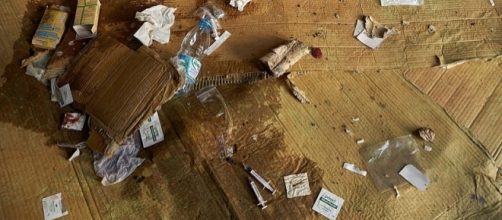Those who are into drugs use syringes and needles and throw them aside after the purpose is served and these come to rest in different locations like along hiking trails and even in playgrounds and some of them get carried away by the river waters to get deposited on the beaches. Such carelessly discarded items turn up in every conceivable place and are potential health hazards because these might be carriers of blood-borne diseases like hepatitis or HIV or even be exposed to remnants of heroin or other drugs.
Magnitude of the problem
Daily Mail UK reports that in Portland, Maine, the number of such heroin syringes and needles recovered in 2016 was nearly 1000 while this year the number has already crossed the 500 mark.
The situation in San Francisco is alarming - in the month of March this year, it collected more than 13,000 syringes while the corresponding figure last year was hardly 3000 and it reveals a trend that is dangerous and has to be checked for the well-being of society.
The states of New Hampshire and Massachusetts have witnessed an increase in the number of overdose death related to drugs and Tim Soucy, health director in Manchester, New Hampshire's largest city, feels that it is undoubtedly a Health Hazard. The city began tracking the needles from last year and recovered slightly more than 550 needles. This year, the count is already half of that.
How to control the menace
Drug addicts usually zero in on isolated places to have their fix and discard the needle once it has served its purpose.
If anyone is poked by such a needle, it translates into a health hazard and he would have to undergo a full range of tests to ensure that he has not contracted any disease. The menace of drugs, in general, is well-known as also its source and the Mexico border wall that President Donald Trump has in mind could help to stem the flow of the substance.
Some community well-wishers view the thrown away heroin syringes and needles as pollution of the environment and have descended on the scene to clean up the mess. They want to keep the society safe from the dangers of such threats. One group has recovered hundreds of needles from abandoned, homeless camps apart from piles of debris.
A feasible solution to this problem could be the needle exchange programs by which drug users can get needles provided they return an equal number of used ones. Such a program is there in more than 30 states. Alternately, specific locations or safe spaces could be identified for the addicts as has been done in Canada.


